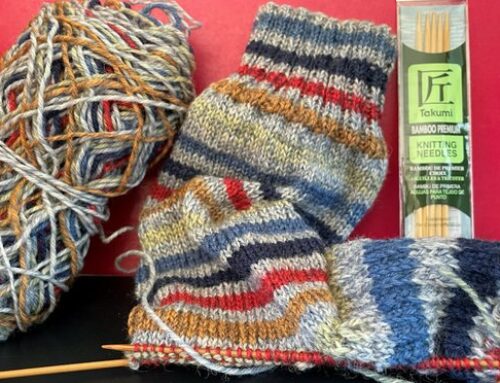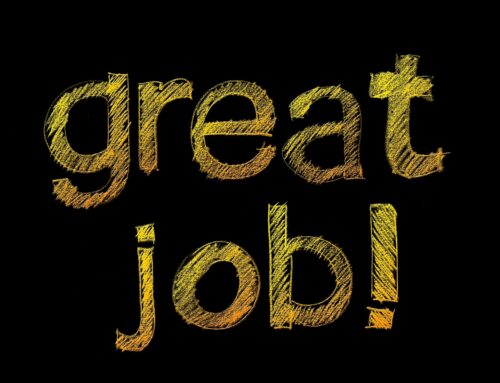On Sept. 8, sisters Serena and Venus Williams squared off during the U.S. Open in a match that could have had historical significance for Serena Williams, who was closing in on a Grand Slam, a feat not achieved since 1988. In an article aptly titled “Love Game,” Steve Tignor, for Tennis.com, described the charged atmosphere as a sold-out, celebrity-riddled crowd filled Arthur Ashe Stadium in New York. “It was more unique, definitely,” Venus Williams said of the vibe. “Serena is going for the Grand Slam, and I think everybody is interested because she has to play her sister to get to that. People want to see, you know, how that’s going to come out.”
While the crowd may have been hoping for a dramatic passion play of sibling rivalry, the competitors were more pragmatic. Tignor reported, “According to Venus and Serena, though, it was all par for the course for them as tennis pros—nothing personal. Last night each of them said that the fact that they’re sisters fades from their minds as the match starts and the normal reactions to competition take over.” Photographs of the match were compelling, particularly after Serena Williams won. They met at the net for a warm, emotional embrace. “‘I just said, “I’m so happy for you,”‘ Venus said later.”
That same day, Stephen Colbert debuted “The Late Show” with Jeb Bush, the Republican presidential candidate, in his guest seat. Colbert looked out to the audience where his own brother, Jay Colbert, was sitting. “Jay, you and I don’t agree politically, do we?” Jay Colbert agreed that they do not, and Stephen Colbert turned back to Bush and said, “I love my brother even though we politically differ. Without in any way diminishing your love for your brother, in what ways do you politically differ from your brother George?” Colbert masterfully crafted the question to include, as a given, that positions can differ strongly without ruining relationships. In another surprising twist, Colbert’s friend, Jimmy Fallon, made a cameo appearance even though they are now ratings rivals, leading me to wonder if a new era of civility is being ushered in, where competitors do their best work and can still be generous and kind. Competition and conflict can co-exist with high regard and respect in the legal profession as well. You can practice civility while doing battle. When I was a young lawyer, I accompanied my boss to an argument in the Philadelphia Court of Common Pleas. He and opposing counsel went at each other ferociously and afterword chatted amiably about tennis and their wives. I didn’t know this was possible and it was an early lesson in collegiality.
Later, I met Gordon W. Gerber, a partner at Dechert who represented property owners in a title dispute. He arrived early one morning at my office for depositions. I went to greet him and he acted like it was the greatest pleasure of his life to make my acquaintance. He seemed delighted and it was genuine. Even though it was two decades ago, I can still picture his face, the bright smile, the warm handshake. It did not stop him from letting me know that my case was destined to fail because of the laches doctrine, but it was nothing personal. He inspired me as the ideal of a class act and I wanted to be like him. As I progressed in my practice, there were like-minded attorneys able to separate the case from the counsel and I made friends in all camps. On the other hand, there were those for whom the battle was personal. They identified so strongly with their positions that it prevented any courtesy. There is always a choice of which way to be and it can be made at any time.
Lack of civility is not only unpleasant, it can also make cases harder to resolve, because people take greater risks when they are angry and that can be bad for business. Jennifer Smith wrote about this in a Wall Street Journal article titled “Lawyers Behaving Badly Get a Dressing Down From Civility Cops,” about the New York Inn of Court, a legal group that promotes collegiality and ethical behavior. She quoted an attorney who said, “‘When I’m upset, I can feel the testosterone rising, and I can literally feel my judgment declining.'” He was a co-chair of the American Board of Trial Advocates’ committee on professionalism, ethics and civility. Lawyers who successfully compartmentalize the client, the case and the counsel on the other side will have richer, more satisfying careers. Every person we meet represents an opportunity, and if you automatically disqualify those who oppose you in litigation or negotiation, you miss out. These lawyers can become referral sources, references and resources later on. Who has a better idea of what you can do than a lawyer who has seen you in action? Especially in the early years of a career when asking for references from your current employer could jeopardize your job, an opponent can describe your abilities in detail. What can you learn from Venus and Serena Williams about fighting a good fight but not making it personal? Here are some suggestions that have worked for me and my clients:
- Be mindful that this is your job, not your life. Remind yourself to balance commitments to yourself, your partner and kids, family, work and friends. A balanced life will have less stress and fewer temptations to be uncivil.
Find role models. Identify someone who exemplifies high status, accomplishment and class. Study how they handle difficult conversations and highly adversarial opponents. - Actively seek out mentors for any area you want to develop, including managing emotions.
Lose the combative tone and use courtesy and humor to respond to snarky letters or comments. Returning fire is counterproductive and leads to burnout. - Pause. If your opponent goes on a rant, allow it to end and employ silence. Take a breath, and if a response to the content is warranted, do it in a soft tone. This can prevent escalation and you will feel better afterward knowing that you resisted the lure of going toe to toe. Besides, opposing counsel may just be egging you on, hoping you’ll lose your cool. Don’t give that satisfaction.
- Choose your battles thoughtfully and strategically. I went to the mats over the location of a deposition years ago and still remember it as an example of needlessly digging my heels in about an insignificant issue. If Gerber could leave his Philadelphia office in the sky and come to my three-story building in Media, I could have walked three blocks to my opponent’s office instead of spending the day at the courthouse where lawyers who cannot agree take their depositions.
- Nurture relationships with fellow lawyers even when they are on the other side. They will last longer than the cases and enrich your career. This will not make you soft when pitted against the same attorney in a subsequent case unless you let it.
- Be curious and positive. Ask fellow lawyers about their interests and passions. Some of the best conversations of my legal career happened while I waited with opposing counsel for witnesses to show up. One discussion led to my decision to become a coach. You never know.
- Meet in person more. It is harder to be nasty in person than on the phone or by email.
Disarm disrespect by focusing on the positive. Finding something good about your opponent will help you keep his or her humanity at the forefront.
Effective lawyers are also charming, accommodating and gracious when it doesn’t cost them anything. Being genuinely friendly to opponents will make them more apt to cooperate, negotiate with a win-win orientation, and become resources. No matter how others behave, you always have a choice of how to respond. Taking the high road may not give you the last word, but civility has rewards that far outweigh being right when it doesn’t matter, and you can still win the match.
Reprinted with permission from the September 17, 2015 edition of “The Legal Intelligencer” © 2015 ALM Media Properties, LLC. All rights reserved. Further duplication without permission is prohibited. For information, contact 877-257-3382, reprints@alm.com or visit www.almreprints.com





